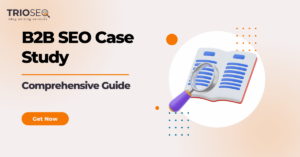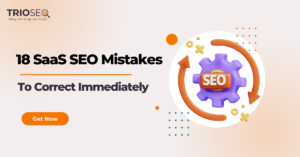Trying to grasp the pros and cons of SEO?
It’s common to feel lost in the maze of search engine optimization (SEO).
In this guide, we’ll demystify search engine optimization, laying out its advantages and disadvantages to help you gauge its true potential for your website.
What is SEO?
Search Engine Optimization, or SEO, refers to maximizing a website’s visibility for related searches on platforms such as Google, Bing, or Yahoo.
SEO uses targeted strategies to improve website or blog rankings and visibility online. Its main goal is to attract organic traffic – visitors who arrive at your site through unpaid search results.
Unlike paid advertising, where one pays to have their site visible in SERPs (Search Engine Results Pages), with effective SEO, you rank naturally.
As we’re about to witness, implementing this tactic can sometimes be challenging. However, using proper techniques can open up numerous opportunities for online businesses looking to stand out in today’s competitive market.
Let’s dive deeper into the intriguing aspects surrounding these benefits and the potential drawbacks of utilizing search engine optimization!

Advantages of SEO
When it comes to improving your online presence, understanding the pros and cons of SEO is indispensable. As a cost-effective strategy with numerous benefits, SEO has become increasingly important for businesses worldwide.
1) Increased Visibility
The first significant advantage is increased visibility.
By optimizing your website through relevant keywords and high-quality content, you drastically increase the chances of appearing in search engine results.
Organic search (non-paid for results) can provide substantial targeted traffic, greatly enhancing your visibility online. Indeed, studies show that 53% of all trackable website traffic comes from organic search – hence the importance of SEO.
2) Improved Brand Recognition
Another crucial pro relates to brand recognition.
High ranking in search instills trust and credibility in users: websites appearing on the first page are often seen as more reliable sources.
Additionally, once users have seen your name regularly in their searches, this subtly reinforces recognition and familiarity with your brand.
3) More Targeted Traffic
SEO is not only about attracting traffic but also driving targeted traffic.
The careful keyword research underlying good SEO ensures that you’re reaching an audience genuinely interested in your products or services – potential customers who are likely already seeking your offer.
As a result, a good user experience (UX) is crucial. By aligning UX with visitor expectations, conversion rates can significantly increase.
4) Cost Effective
There’s no denying that marketing can be an expensive endeavor, making cost-effectiveness another key advantage within the pros and cons of SEO discussion.
Compared to paid advertising methods like Pay Per Click (PPC), organic SEO is a long-term investment that can offer a strong return on investment while reducing high advertising expenses.
Want to learn more about this topic? Check out our SEO cost calculator article or guide about if an SEO retainer is right for you.
5) Long Term Results
Finally, let’s focus on longevity – an aspect many other strategies lag.
SEO takes time to show results. But with steady work and patience over a few months, you can see lasting growth in visibility and revenue. This momentum further strengthens the foundation set by your initial SEO investments.
However, while recognizing these benefits, it’s essential to remember the disadvantages to maintain a balanced view of the pros and cons of SEO.

Disadvantages of SEO
As we flip the other side of the coin, let’s offer an inside perspective on the cons of SEO.
For beginners and experts alike, it’s vital to note that while SEO has significant advantages, recognizing its shortcomings can help you craft a more robust strategy.
1) SEO Requires Patience, Expertise, & Knowledge
The first pitfall is time consumption— search engine optimization often requires considerable dedication and patience.
In-depth keyword research, content creation, and link building, all integral to successful SEO, require time and effort.
However, businesses seeking long-term success shouldn’t be scared away by this; instead, it reminds them that achieving outstanding results won’t happen overnight.
2) There Are No Instant Results
Bouncing off from our previous point – there is no instant gratification here, folks! Getting high rankings with SEO takes time.
Algorithms take time to detect changes, so patience is vital to seeing real benefits from your efforts. This drawback is essential to understanding SEO’s pros and cons.
3) SEO is Not Predictable
Diving further into SEO challenges, unpredictability tops many lists. Since search engine algorithms constantly fluctuate, maintaining consistent high-ranking positions is challenging for even seasoned professionals. This lack of predictability makes forecasting performance or drawing up accurate budget plans harder.
Then again, things don’t go as planned. Even if you work hard, you might not get the desired results. In SEO, this is a crucial point to remember, especially for those thinking about the benefits of search engine optimization.
So that being said, are SEO services worth it? We think so.
4) There Are Risks of Getting Penalized
Danger lurks around the corners if you violate guidelines established by Google or Bing. Unethical tactics known as black hat strategies might initially seem attractive due to their potential for speedy rewards – however, they come with grave consequences.
5) Constant Maintenance Required
SEO isn’t a “set-and-forget” task but an ongoing race. Be prepared to monitor analytics, reports, and rankings to ensure you’re on the right path. Sometimes, you must apply updates, optimize your website, or add supporting content to boost other page rankings.
To learn more, check out our complete guide on SEO maintence.

Types of SEO Techniques
Now that we’ve covered the pros and cons, understanding different types of SEO is paramount to grasp this complex topic.
On-Page SEO
On-page SEO is modifying a website’s front end to improve rankings of search engine results page (SERP).
Unlike off-page optimization, which focuses on backlinks and other external signals, on-page optimization targets the content and architecture of your site. For example, this includes elements like keyword usage, meta descriptions, title tags, headings, URL structure, and internal links (among others).
These strategies allow search engines to understand what your content is about.
They also help visitors easily navigate your website by making it user-friendly. While it requires expertise and knowledge for effective results, the benefits of SEO are worthwhile.
Want to learn more about content & content briefs? Visit our ultimate guide.
Off-Page SEO
Off-page SEO complements on-page efforts as part of a holistic SEO strategy.
Contrary to its counterpart, which takes place within the confines of your site, off-page optimization involves actions taken elsewhere (online) to boost your website’s reputation and authority.
One common approach is creating high-quality backlinks from trustworthy sites. Social media promotion is another way to spread the word about your content outside your platform.
It’s important to note that while these methods might have their particular advantages, they also carry risks; one is the potential threat of getting penalized due to poor quality links that may negatively impact your SERP rankings.
Technical SEO
Technical SEO supports on-page and off-page strategies by ensuring that search engines can seamlessly crawl and index a webpage without encountering roadblocks within its codebase or server configurations.
Technical SEO strategies include XML sitemap submissions, mobile friendliness assessment, site speed enhancements via caching policies, or compressing file sizes (to name a few).
While technical optimizations may seem daunting, especially because constant maintenance is required for ever-changing algorithms, they yield phenomenal benefits once appropriately implemented.
However, integrating technical SEO warrants substantial investments – potentially costly due to specialists’ input necessary for execution—an aspect worth considering when weighing the pros and cons.

Frequently Asked Questions
Below are some common questions and answers.
What Are Some SEO Best Practices?
Search engine optimization is complex and continually morphing. Despite this unpredictability, some best practices can help enhance your website ranking:
- Use Relevant Keywords: This should concern your main content, meta descriptions, and title tags.
- Optimize Images: Always use alt-text describing what’s in the image and get the file size as small as possible without distorting the quality.
- Keep Content Fresh: Regular updates ensure your site stays relevant.
- Mobile Optimization: Google prioritizes mobile-friendly sites, so ensure yours fits the bill.
- Internal Linking: Connecting related content on your site helps search engines understand your site and builds authority.
Remember, these are merely guidelines for navigating SEO; results may vary based on different factors, including the specific niche, target audience behavior, or recent algorithm updates.
What Are Some Common Mistakes to Avoid in SEO?
When exploring SEO, it’s just as vital to grasp which actions could harm your efforts.
- Overusing Keywords: Commonly known as keyword stuffing, overusing keywords unleashes penalties from search engines.
- Duplicate Content: Search engines prefer unique and fresh material over recycled text.
- Not Using Analytics Tools: The essence of good strategy lies within analytics; ignoring them means sailing blind.
- Poor Quality Links: Your goal should be to acquire as many niche-relevant links from authoritative sources as possible. Steer away from small sites that don’t have much credibility.
How Long Does It Take To See Results From SEO?
Sadly, SEO is a marathon. Typically, it can take anywhere from four months to a year before seeing significant results.
The timeframe mainly depends on elements, such as competition within your industry or the quality of executed strategies. It’s all part of mastering the long game called ‘SEO.’
Want to learn how to choose an SEO company? Picking the right agency will set you up for success.
Conclusion
Let’s take a moment to reflect on the pros and cons of SEO.
SEO can help make your website known and get more people to visit. But SEO takes time and doesn’t show immediate results. There’s no promise that your site will always stay at the top because algorithms change or other websites might do better.
If you think about everything and make smart choices, SEO can be beneficial!
We hope this guide helps you understand the pros and cons of SEO.
Want to take this article one step further? Check out our SEO cheat sheet!




![Featured Image - Mental Health Content Writing [Best Practices and Ethical Considerations]](https://trioseo.com/wp-content/uploads/2024/05/Mental-Health-Content-Writing-Best-Practices-and-Ethical-Considerations-300x157.png)
![Featured Image - Beginner’s Guide to CBD Content Writing [Tips Included]](https://trioseo.com/wp-content/uploads/2024/05/Beginners-Guide-to-CBD-Content-Writing-Tips-Included-300x157.png)

![Featured Image - [Ultimate Guide] SEO For Tech Companies That Outranks Competitors](https://trioseo.com/wp-content/uploads/2024/04/Ultimate-Guide-SEO-For-Tech-Companies-That-Outranks-Competitors-300x157.png)

![Featured Image - B2B SaaS SEO - Ultimate Guide [Strategy Included]](https://trioseo.com/wp-content/uploads/2024/04/B2B-SaaS-SEO-Ultimate-Guide-Strategy-Included-300x157.png)

